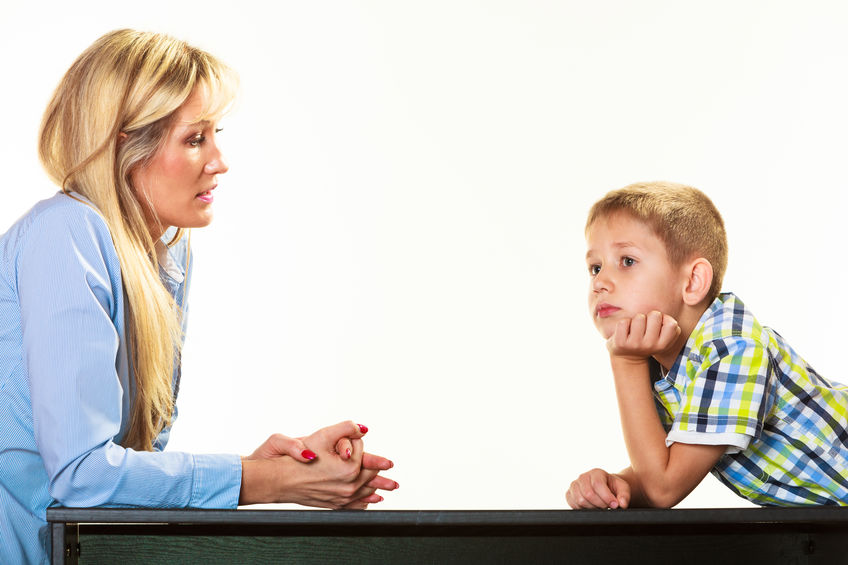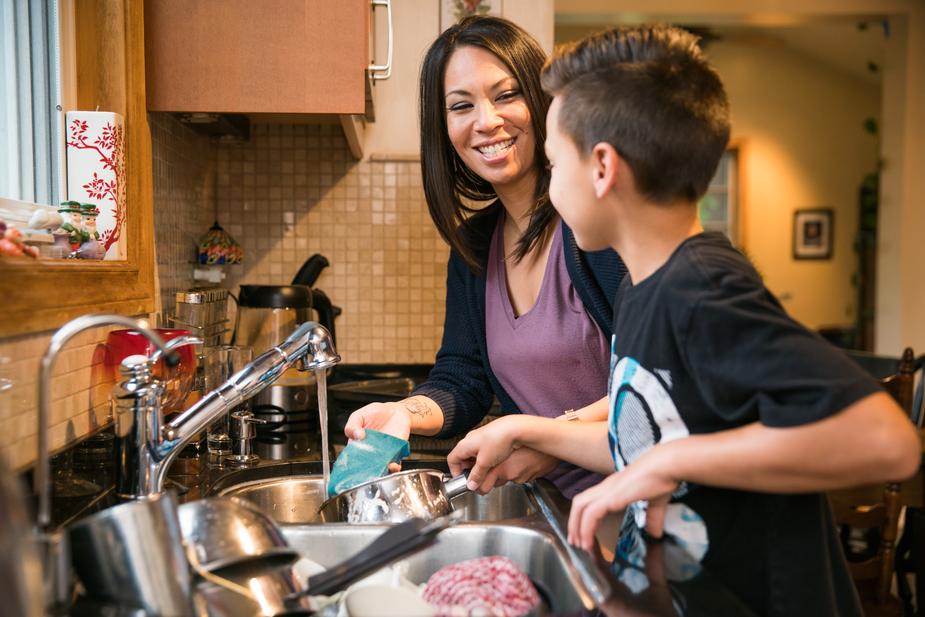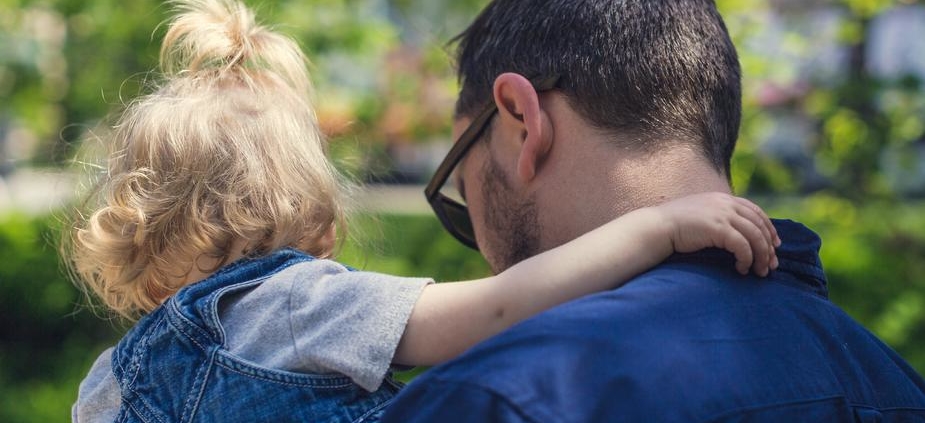How to Keep from “BLOWING UP” Your Case
(and Hurting Your Children)
Divorce affects more than you and your spouse. It affects parents, siblings, and most importantly, your children. Divorce is difficult for children of any age, and it can open up tricky emotions, difficult conversations, and complex behavioral challenges. Children often manifest the stress they feel in behavioral ways; from distraction to crying, depression to inappropriate peer relationships—these all can be outward signs that your children are suffering the stress of conflict between you and their “other” parent.
To keep divorce from sabotaging your relationship with your children pre-, mid-, and post-divorce, consider these recommendations.
Know That This is Difficult for Them, Too
While you are the one with the marriage ending, your children are also experiencing life-disrupting (and life changing) relationship issue. This is going to be a difficult season for them. This is true for children of all ages and it absolutely affects their development physically, socially, emotionally and academically. Oftentimes we think of children as “resilient.” Perhaps a better way of thinking is that children are “malleable”—the conflict between you and your spouse does not allow them to “spring back into shape,” but rather allows them to “mold into a new shape” without breaking. Children have spent their entire lives within your marriage, knowing and learning that both of “you” are “half” of who they are as people. They need time to adjust to the new dynamic between you and your ex, their new environment, and their new reality.
Your emotions about the “other” parent need to remain “yours.” Do not involve your children in the matter and do not speak negatively about the their other parent. Children tend to internalize these types of things which creates anxiety in the child and causes them to question who they are individually. This often leads to stress, anxiety, depression and acting out by the child.
Try to be mindful of your emotions and how they come across to the child and be aware that children, regardless of age, are far more “in tune” with you than you realize. Children understand even the most inadvertent acts that involve their parents—because they are in tune to their own changing dynamic and the stress going on around them. They hear that conversation with a friend where all the things the “other parent” has done wrong is talked about; They listen to your opinion about the character of their other parent and what he or she has done even though they are “in the other room.” Be mindful that children have “big ears” and understand a lot more than you may be willing to give them credit for—regardless of their age. Save any negative emotions about the other parent for your lawyer or therapist or another trusted advisor. Give your children the space to process their thoughts and emotions, and leave any negativity—even subtle comments at the door. Then, IF and when it is possible, sit down with your children at a neutral location with their other parent and answer any questions the children have in an open forum showing that you and the other parent are “unified” in your approach to issues that involve them—even when you may disagree.
If the situation precludes you from doing so, do your best to answer your children’s questions clearly and without talking down or negatively about the other parent. Remember, that person you may dislike now was someone you cared for at some point; they are your children’s parent, too, and deserve some respect. (As difficult as this can be at times!)

Communicate with Their Other Parent Regularly
Unless your situation makes this difficult or not advisable, communicate regularly with the children’s other parent. While there were likely communication breakdowns leading up to your decision to divorce or separate from your children’s parent, these breakdowns need to be rectified in order to help your children thrive in their new reality.
Maintain as Positive a Relationship as Possible (with the “ex”)
Pick-ups, drop-offs, and custody agreements are not the easiest of things to live with. Someone always wants or “needs” to change things: His parents are coming into town on a weekend where your children are with you, the children are involved in events outside the home, you have to move for work, you simply would like an extra day during summer vacation, a good, positive relationship with your ex makes these things much easier to accommodate, if needed.
Naturally, this is frequently not the reality you are in right now, or is more difficult based on your personal situation and type of family issue, whether divorce or modification case you have been through. However, a good relationship with your “ex” is possible in even the most contested cases once the litigation is over and the Court rules. Commit to making the best decisions for your children, leaving fault and blame aside and reducing the tension with your former spouse —even if it means not “being right,” even though you know you are. Moreover, there are ways to make tough communication with your ex easier—whether face to face or otherwise.

Prepare for a Difficult Patch with Your Children
Even the most well-adjusted children will struggle with a divorce. As discussed briefly above, children adjust to divorce, but their difficulty is often seen through stress, anxiety, depression and misbehavior. You should always prepare for the worst, but hope for the best with your children. Regardless of which parent you are, take the children where you find them (emotionally speaking) and do not set yourself up for frustration by expecting that the children are in the same place you are emotionally. Do not get disappointed or frustrated if the children do not react the way you had hoped or how you wanted them to—they are experiencing their own challenges in this “new” situation. This does not mean, however, to forego any rules or responsibility the children have—boundaries and expectations for your children are equally critical at this point in their lives and cannot be ignored—plus, these give the children some familiar “structure” that they need.
If problems do persist, consider making an appointment with a child therapist or child psychologist for the child, and watch for sudden behavioral changes. These professionals can give you the support and tools you need to help your children through this experience.
This information isn’t meant to discourage you. Instead, we want to empower you to create a safe and even happy space during your divorce or modification action so your children can process their emotions and prepare for their new lives.
Remain Proactive when Discussing Your Divorce
Remain honest and proactive when asked by your children or when discussing the situation you are in with their other parent. This will look different for every case, whether divorce, modification of custody action, or contempt, but it typically includes keeping an open line of communication with each child. Reiterate that it’s okay to ask you questions and that you will be honest, but will not go “into detail” about the case with their other parent. This can also help prepare them for the stress legal proceedings inevitably bring.
The proceedings of a case is particularly important to children who are older and have been told they “…are old enough to choose which parent they want to live with.” Help them process this by listening, weighing their thoughts on the options, and refrain from criticizing or judging their thoughts on the process. Most importantly, however, reiterate that ultimately, it is the Court’s decision on which parent they live with and not entirely “their decision.”

Raising Your Children Is a Collaboration, Not a Competition
The term “co-parenting” has become a buzzword. That doesn’t make it a negative idea. Co-parenting with your former spouse is rift with potholes, especially as your children mature and develop. Commit to raising your children collaboratively as much as possible. Parenting is never a competition. The more you (or your ex) try to “be right” or “one-up” the other, the more likely it is to sabotage your relationship with your children and the other parent.
To co-parent children takes effort and involves you being more concerned about facilitating a relationship between the child and his (or her) other parent than being “right” or “having more” than they do—regardless. It means making decisions about your children with similar thoughts, rules and understanding toward your “ex” and “together” as much as possible. Co-parenting requires work between you and your former spouse, along with listening to your children’s needs.
If your specific situation makes this impossible, focus on the positive aspects of your ex and limit the negative exposure your child gets about their other parent, even if it may be painful for you in the short term. This will lead to a much healthier relationship between you and your child in the long term.
Introduce a Routine as Soon as Possible
Introduce your children to a new routine as soon as it is established and with a positive attitude about the change. This will not only help your children begin to adjust, but also helps create a new normal to give them a sense of what to expect.
For example:
- Help the children understand which days of the week they are with you and which days they are with their other parent. As you see them off to the other parent’s home, let them know you love them and hope they have “fun” during their time away;
- Help the children understand their new pick up and drop off schedules from school and extracurricular activities;
- Explain to the children what school holidays and summer vacation will be like;
- And the list could go on.
These routines will take some time to fully implement. Much like when they were babies, though, a routine can help improve behavior concerns and reduce the impact your divorce or modification case has on your relationship with them.
In closing, divorce is difficult for you, but it can be even more difficult for your children who are still developing their coping mechanisms and communication skills. Support their growth through empathy, clear communication, collaboration, and space throughout the process.
Once you begin to rebuild your lives with them, you can start to engage with them about their emotions, questions, and concerns about their new lives. Remember: you’re in this together, and you’re a team. Divorce or Modification of Custody is another challenge and you’re going to get through it together.
(and Hurting Your Children)



